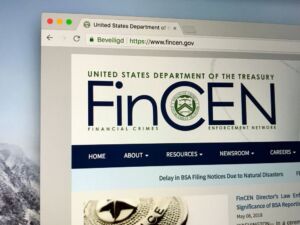Clean Vehicle Tax Credit Transfer Regulations
 When the Inflation Reduction Act was enacted in August of last year it introduced several programs designed to achieve climate goals, strengthen energy security, create new jobs and reduce energy costs for families. To achieve these goals, there were several tax updates made to reward individuals and companies for making energy efficient investments. In fact, there were 12 new federal tax credits introduced and several others modified including the New Clean Vehicle Tax Credit and the Used Clean Vehicle Tax Credit. Designed to encourage the purchase of energy efficient cars, taxpayers can receive a credit of up to $7,500 for the purchase.
When the Inflation Reduction Act was enacted in August of last year it introduced several programs designed to achieve climate goals, strengthen energy security, create new jobs and reduce energy costs for families. To achieve these goals, there were several tax updates made to reward individuals and companies for making energy efficient investments. In fact, there were 12 new federal tax credits introduced and several others modified including the New Clean Vehicle Tax Credit and the Used Clean Vehicle Tax Credit. Designed to encourage the purchase of energy efficient cars, taxpayers can receive a credit of up to $7,500 for the purchase.
Through the end of this year, the only way to receive the credit is to submit a filing with the annual tax return. However, starting in 2024, the rules change allowing taxpayers the opportunity to transfer the credit and apply it toward the sales price. Unfortunately, many have been unsure how the process will work because of lack of IRS guidance. The good news is the agency recently released IRS Revenue Procedure 2023-33 which provides essential details. To help clients, prospects, and others, WhippleWood CPAs has provided a summary of the key information below.
Guidance Overview
As outlined in the Inflation Reduction Act, consumers can elect to transfer a new clean vehicle credit ($7,500 maximum) or used clean vehicle credit ($4,000 maximum) to a car dealership starting in January 2024. The proposed regulations provide details on registration requirements, how the transfer will work for dealerships, and proposed eligibility rules for the used clean vehicle credit.
Dealer Requirements
An eligible dealership must meet certain requirements when the credit is transferred at the time of purchase. First, the dealership must be signed up with IRS Energy Credits Online Portal. At the time of purchase, dealers are required to disclose to the buyer the manufacturer suggested retail price (MSRP), the credit amount and other incentives available for the purchase of the vehicle, the amount provided for the transfer of the credit, and provide compensation to the buyer. Additional information to report includes the Vehicle Identification Number, battery capacity, date of sale, sale price, and the maximum credit allowed.
For sales occurring in 2024 or later, sellers must file the report within 3 days of the time of sale.
If it is discovered the dealership has violated any of these rules, then program participation will be terminated. It is important to note that dealer participation is voluntary. Even in cases where the dealership is accepting the transfer of these credits, the taxpayer can still elect to wait and file the necessary documentation along with their federal tax return.
Vehicle Sale Cancellation
If the sale is cancelled before the vehicle is placed in service (before the taxpayer takes possession) then the taxpayer may not claim the new vehicle tax credit. The vehicle will be eligible for the credit upon sale to another customer. If a return is made within 30 days of placing the vehicle in service, the purchaser cannot claim the credit on the vehicle. Once returned, the vehicle is not eligible to have the credit claimed by another purchaser.
In the event of resale made within 30 days of vehicle purchase, the buyer is treated as having purchased the vehicle with an intent to resell and is not eligible to claim the credit. It will be considered as already placed in service and the credit cannot be claimed.
Tax Treatment
The good news is that any payment received in exchange for transferring the credit is not to be included in the gross income of the taxpayer. As expected, the payment is treated as an advance against the total value of the credit. The proposed regulations require the vehicle purchase price to be reduced by the exact amount of the credit.
Contact Us
The proposed regulations provide important insights into the process for both dealerships and taxpayers. Since these are simply proposed regulations, it is possible additional changes could be made in the future. If you have questions about the information outlined above or need assistance with a tax or accounting issue, WhippleWood CPAs can help. For additional information call 303-989-7600 or click here to contact us. We look forward to speaking with you soon.
About the Author

Mona Feeley CPA
Being a small business owner through some considerable life challenges has provided Mona the ability to see life and entrepreneurship from a unique perspective. Overcoming those challenges while seizing opportunities and moments that would probably pass others by has also given her an optimistic mindset and a brand of determination that is contagious to her colleagues and her clients.



